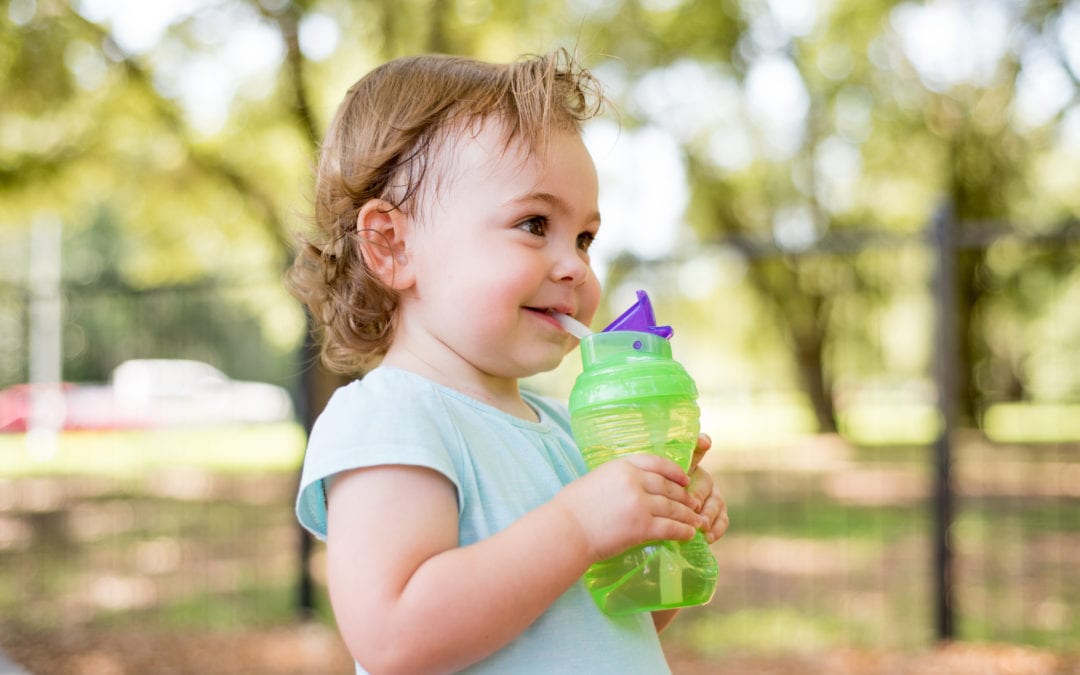Summer weather is great for pool parties and barbecues, but with the summer sun also comes an increased risk of dehydration and sunstroke. Learn more about the difference between the two, as well as how to stay cool and hydrated so you can continue to enjoy the summer fun.
What are Dehydration and Sunstroke?
Dehydration is a decrease in the body’s water balance. Water is crucial for survival since approximately 75 percent of the human body is water, so dehydration can have severe health consequences. Proper hydration is particularly important in hot weather to help lower the risk of heat-related illnesses like heat exhaustion and sunstroke.
Sunstroke, or heat stroke, occurs when the body loses its ability to cool itself and body temperature rises above 104 degrees Fahrenheit. Certain groups of people including infants, young children and older adults, as well as those taking certain medications or with certain health conditions, are more prone to these conditions.
Signs of Dehydration
Signs and symptoms of dehydration vary depending on how severe the condition becomes. One of the top indicators of hydration levels is the color of urine: pale or clear urine indicates good hydration levels while darker urine points to dehydration. In addition to darker urine, early symptoms of dehydration may include thirst and decreased urine production. Moderate dehydration may also include the following symptoms:
- Lethargy
- Dry mouth
- Muscle weakness
- Dizziness
- Headache
Severe dehydration may include the above symptoms plus the following:
- Sunken eyes
- Lack of sweating
- Dry, shriveled skin
- Low blood pressure
- Fever
- Increased heart rate
- Delirium
- Unconsciousness
Signs of Dehydration in Children
Infants and children may show the following symptoms of dehydration:
- Irritability
- Sunken soft spot in infants
- Dry mouth and tongue
- No tears when crying
- Sunken eyes or cheeks
- No wet diapers for more than three hours
Signs of Sunstroke
Sunstroke shares a number of symptoms in common with dehydration including a headache, sweat changes, increased heart rate, delirium and unconsciousness. Sunstroke victims may also display the following symptoms:
- Elevated body temperature
- Nausea
- Red skin
- Rapid, shallow breathing
- Mental changes
Treatment
Treatment of dehydration and sunstroke focuses on reversing the condition that causes the problem. This means increasing fluid levels for dehydration and decreasing temperature for sunstroke. Treatment for dehydration may include the following:
- Drinking clear fluids including water, ice pops, broth or sports drinks
- Intravenous fluids
- Avoiding caffeinated beverages
- Treatment of underlying medical conditions that increase the risk of dehydration such as diarrhea, vomiting, fever and diabetes
Cool a person with sunstroke quickly. Possible ways to treat sunstroke include:
- Submerging in cold water
- Misting with cool water and fanning to encourage evaporation and cooling
- Wrapping in a cooling blanket
- Placing ice packs on the body in areas with large superficial veins such as the neck, armpit, groin and back
Prevention of Dehydration and Sunstroke
Both dehydration and sunstroke are more common in hot weather. Take steps to help avoid them by following these prevention tips:
- Drink plenty of fluids
- Consume foods with a high water content like fruits and vegetables
- Minimize activities in extreme heat
- Avoid being active during the hottest part of the day
- Replenish fluids after activity or sweating
Additional tips for avoiding sunstroke include:
- Wear lightweight, loose-fitting clothing
- Take frequent breaks from activity in hot conditions
- Don’t leave someone in a parked car, even with open windows
- Avoid sunburns
Dehydration and sunstroke are serious medical conditions that are largely preventable. Take care of yourself and your loved ones by taking proper precautions to help avoid these conditions, particularly in hot weather. Our team of knowledgeable healthcare providers can help you manage to deal with sunstroke and dehydration. Contact us here for more information.

